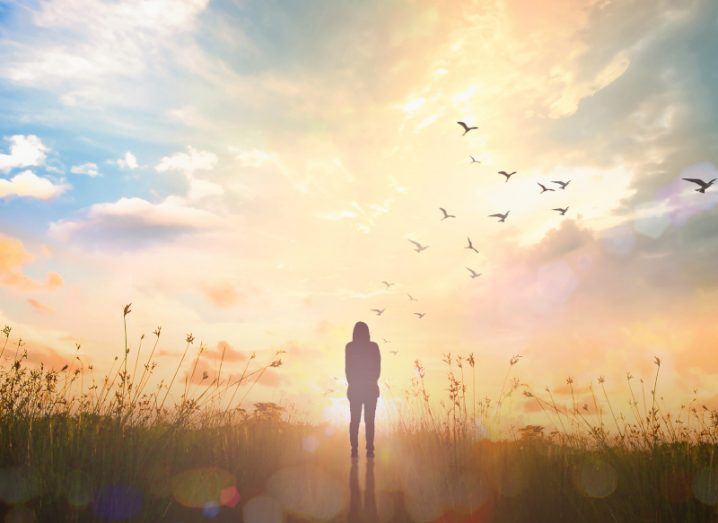The coronavirus is a plague of absence. Not only do we face a health crisis on an unprecedented scale but, for many of us, now there are no alarms, no commutes, no coffees with friends and family. There are no classes, no matches, no exams. No confirmations, no graduations, no weddings. All of the traditional rites of passage are being deleted as young and old have their rituals paused or peeled away.
This pandemic has shaken us from an everyday existence that most of us barely noticed or acknowledged a few months ago. It has not only disturbed our freedoms, our interactions, our sense of safety and security, but has brought us face to face with our vulnerability as human beings.
Many of us feel the impact of this absence in the form of overwhelm, anxiety, tension or despair. And yet we must, and do, find ways of carrying on with the everyday no matter how unfamiliar. Social media is awash with advice for managing and maintaining our wellbeing.
We are reminded to stay active and to connect – online or at a safe social distance – to establish a routine or to get creative. To focus on the things we can control and distance ourselves from the things we can’t. To limit how much and how often we consume updates on the virus’ developments and effects. These are certainly effective strategies to manage our anxieties. They boost our mood and soothe our affective state. And yet an existential unease persists.

In describing how coronavirus has made the familiar strange, Fintan O’Toole wrote in The Irish Times last month that “it is not easy, in the midst of a crisis that is only beginning to unfold, to imagine whether and how it will change the way we live, the way we interact, even the way we think”.
Covid-19 has, as O’Toole put it, awakened us to the habitual. Some would say that it has removed the habitual entirely. But without the familiarity of habit and structure, we are confronted with those unsettling questions that underpin our very existence. How can I manage endless time? Am I truly separate from those I love? What is important in my life, now and into the future? It is in these times of radical questioning that we are shouldered out from hopefulness, confidence, and trust.
‘Philosophy may not be the first source of support one would turn to in a global pandemic, but it does have much to teach us about how to be well in the face of radical uncertainty’
Such questioning, of course, has focused philosophical minds for millennia. In pondering the good life, Diogenes stressed an existence of austerity and simplicity in harmony with the natural world. Aristotle foregrounded courage, patience and truthfulness as the basic virtues of any flourishing life. And Zeno, founder of the Stoic school, perceived all human difficulties as opportunities to grow in character and depth.
Fast forward to 20th century philosophy and thinkers in both analytic and more romantic modes have continued to wrestle with these thorny questions of meaning and purpose. Some have imagined a return to ‘the ordinary’ as a salve for our loss of certitude. When we can’t be sure of anything of all – of our knowledge, our values, our very existence and that of others – it is only in returning to the everyday that we can locate meaning in our lives.
And surely, over the past few weeks, the ordinary words and gestures that we hold in common have started to hold us together. Those two ordinary words – ‘take care’ – have been transformed from a bland courtesy to an expression laden with love and solidarity. They have offered us connection and promised us stability. In a way, we are less afraid now to allow our words carry our felt convictions. We are less afraid of the honest and the sincere. None of these efforts are easy, of course, but there is comfort in knowing that philosophers have been working on them for centuries.
Philosophy may not be the first source of support one would turn to in a global pandemic, but it does have much to teach us about how to be well in the face of radical uncertainty and spiralling self-doubt. It is at times like these when the structures of our understanding are compromised – when the taken for granted is taken away – that we may find solace and support not only in the heroic efforts of our contemporaries but in the thoughtfulness of our predecessors.
As we are reawakened to the core questions of our existence, we are reminded that philosophy is not just an isolated or ivory tower discipline. Rather, it represents millennia of thought and consideration as to what is important in life – and what it might mean to live well in the face of forces beyond our control.
EMMA FARRELL AND ÁINE MAHON. APRIL 8, 2020
ORIGINALLY POSTED ON SILICONREPUBLIC.COM
